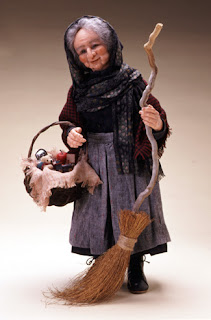The Dragon is a magnificent beast. In the East, the Dragon is the imperial symbol, the sign of the emperor and the male element of Yang. The Dragon is also synonymous with power and wealth.
It is said that people born in the year of the Dragon carry a natural charisma and are gifted with power and luck. They can also be egoistical and ambitious, almost to the point of megalomania, and will often stop at nothing to get what they want. They can be successful as actors, singers, bankers, financiers, politicians, pharmacists and quite comfortable in many other professions.
The Dragon falls on the following years: 1916, 1928, 1940, 1952, 1964, 1976, 1988, 2000, and 2012.
Once upon a time, the
Jade Emperor decided to select twelve animals to be recognized as the zodiac (生肖shēngxiāo) signs. In accordance with a decree, the first twelve animals to present themselves to him on the day appointed by the Emperor would be selected as the animals of the
Chinese Zodiac.
 |
| A right click on the Zodiac will take you to predictions for the coming New Year of the Dragon. Once you get there just click on your sign and all will be revealed. |
The Cat asked the Mouse to help her compete, but the Mouse forgot and the Cat was overlooked. Ever since, there has been bad feelings between the two animals. The other animals choose the Ox to go first but the sly Mouse rode upon his back so that when the Ox lumbered into the Great Hall the Emperor first espied the Mouse. So the Mouse was awarded the first place. However the Tiger and Dragon were angry about the mouse's deception and to placate them the wise Emperor granted them the Kingdoms of the Mountain and the Sea. The Rabbit also voiced his displeasure and challenged the Dragon to a race for the fourth position of the celestial signs. Though the Dragon was swift, Rabbit proved the victor. That’s how the Dragon became the Fifth Animal in the Zodiac.
The story is told that once in the old times there was a monster called N
ián. The
monster was enormous and had spiky antenna coming out of its head. During most of the year it lived in the deepest part of the ocean but on the Eve of the New Year it would rise to the surface and devour people and livestock living on land. However after many years a wise monk discovered that N
ián was afraid of the color red, bright lights and loud-bang noises. So on the New Year's Eve Chinese people put couplets written on red paper up on their gate, hung red lanterns across gate beams, set off fireworks and stayed up all night, which was called "守岁 (
shǒusuì)". It is still the tradition today as people throughout the East approach the New Year with deep lingering feelings for the passing year and a hopeful longing for good things in the coming New Year.
Another tradition that people follow on the New Year is to hang small messages or wishes called Hui Chun in and around their homes and offices, hoping for good fortune during the year. There are many different Hui Chun depending upon the occasion and circumstance. There are Hui Chun asking for sufficient food, domestic harmony, special wishes for the elderly and some wishing students good luck in their studies.
And as I've done in the past I have a Hui Chun that I want to share with all my dear friends:
And may those treasures not be just monetary ones but also the treasures of love, health and happiness.
If you would like to send friends and family a Hui Chun to begin the New Year the people at Discover Hong Kong (one of my favourite cities in Asia) have an interactive site where
Hui Chun can be created and sent to family and friends.
22 January - 1506: The first contingent of Swiss Guards (150 soldiers) arrives in the Papal States.



























